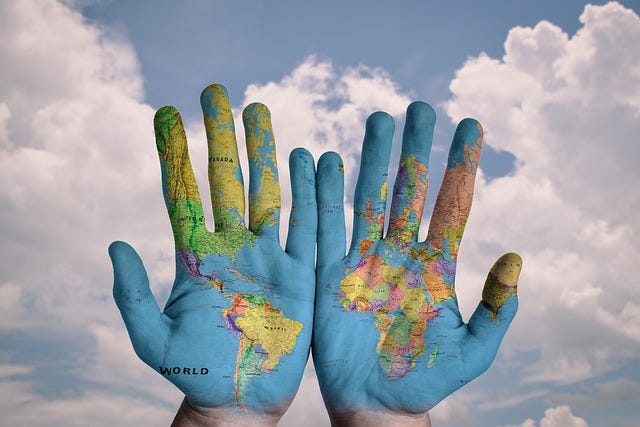How Can I Write about Freedom Now?

How can I write about freedom now, when the world (and my heart) is so often caged?
How can I write about surrender when refugees are turned away?
How can I write about joy when people of color are treated as unequal?
I only have borrowed words to fill my empty cup: “How long, O Lord? How long?”
On September 11, 2001 I was studying abroad in Oxford, England. The principal of the program told us New York was burning. We rushed to a television in the common room, our jaws slack in disbelief. I felt so very far from home.
The next day our group went to see a production of Julius Caesar and the blood and betrayal was simply too much for us to take in. Our wounds were still open. We didn’t have the wherewithal to open ourselves to more bleeding.
One of our associate deans shared C. S. Lewis’ sermon, “Learning in Wartime,” written at the beginning of what was to be World War II. Writing now, too, feels a bit like the “comic discrepancy” between creating art while death looms. Lewis writes:
Never, in peace or war, commit your virtue or your happiness to the future. Happy work is best done by the man who takes his long-term plans somewhat lightly and works from moment to moment “as to the Lord.” It is only our daily bread that we are encouraged to ask for. The present is the only time in which any duty can be done or any grace received.
And:
War makes death real to us, and that would have been regarded as one of its blessings by most of the great Christians of the past. They thought it good for us to be always aware of our mortality.
What is underneath the fears about resettling refugees in the United States, I think, is something rather basic: our fear of death. We move death into assisted living facilities; we call it names like cancer, addiction, old age, war. In our comfortable Western world, we push off death by fixating on the career, the kids’ soccer schedules and exotic vacations.
So when we see the picture of a 3-year-old child washed up on the beach, we grieve, and then perhaps because it’s too painful, we move on. We run to convenience instead of seeing how suffering births deep-down freedom, surrender and joy. A type of freedom that cannot be taken away and is not contingent on the color of your skin or your home country.
So I ask the North American church—knowing I am embroiled in the whole mess, too—“How long?” How long will we be ruled by convenience and nationalism? How long will my own heart run from the hard truths of Jesus?
And I continue to do small things. “The present is the only time in which any duty can be done or any grace received.” So I get my kids ready for school. I cook hearty meals. I sweep the floor and vacuum and scrub toilets. I invite friends and neighbors in. I pray.
Outrage on Facebook will not change the world. Only Jesus can do that. Jesus changes the world as I listen to the Spirit blow through my windows, opening my eyes to a reality and a world bigger than my home-keeping. So while I vacuum I mutter prayers. I trust there’s an upside-down Kingdom where the Spirit translates my groans, my own feeble “I don’t know how to help.” I’m starting small conversations: asking how I can come alongside those who have already made strides towards justice and mercy right where I live.
The world is spinning and so I ask, how can I write about freedom now? Perhaps though, the question should be: How can I not write about freedom? How can I not see the wider story of freedom written across time, the one where a loving Father comes to get his lost sons and daughters? The one where “everything sad has come untrue?”
For, friends, there is a freedom that is wider than the sky and buoys you up like ocean waves. There is a freedom that smells like mountain air that fills your lungs and travels to the tips of your toes. It’s the sound of chains falling off and of running feet of joyous welcome. It announces with a resounding voice that sounds like mighty, rushing waters: “You are home.”




